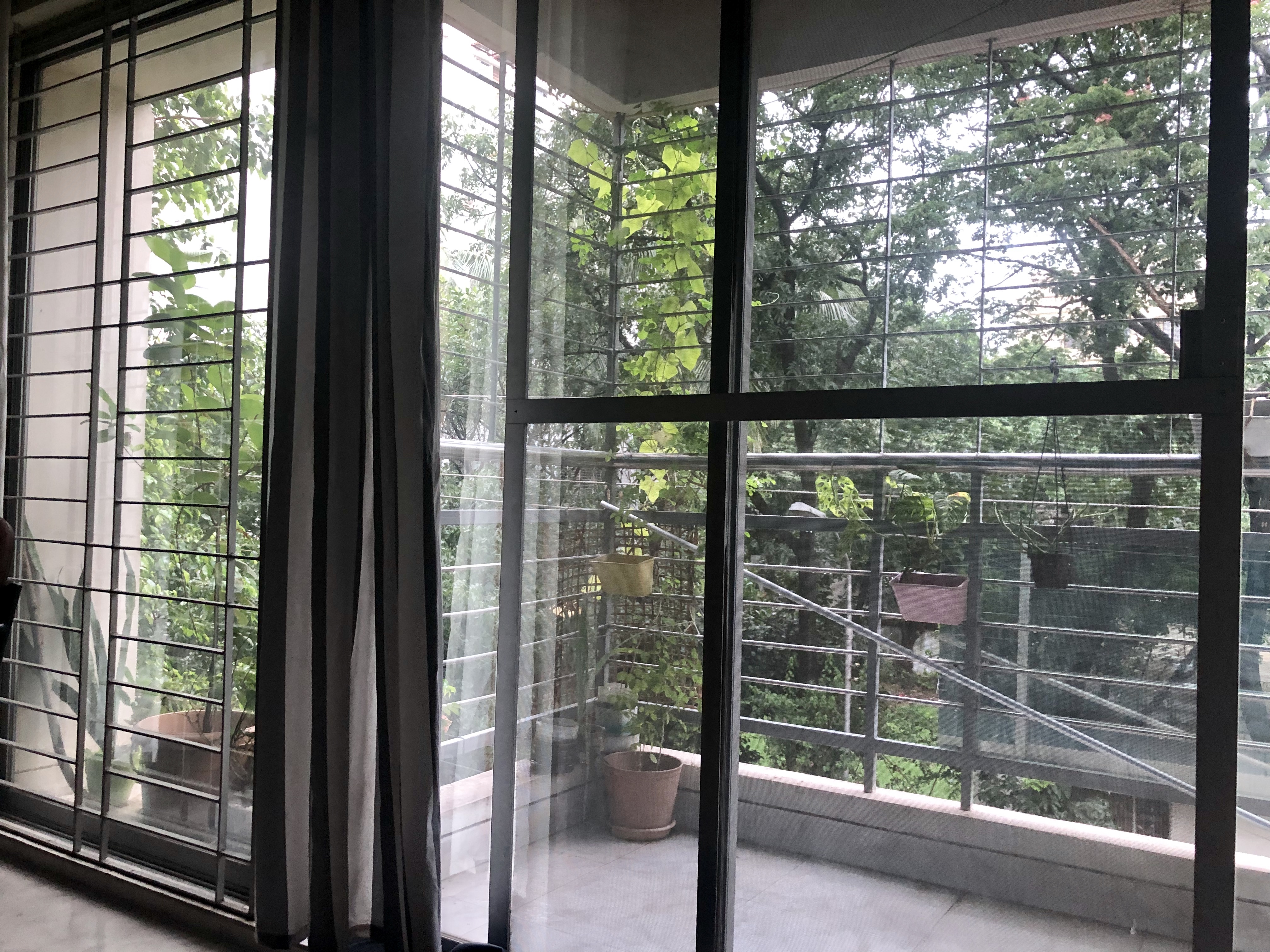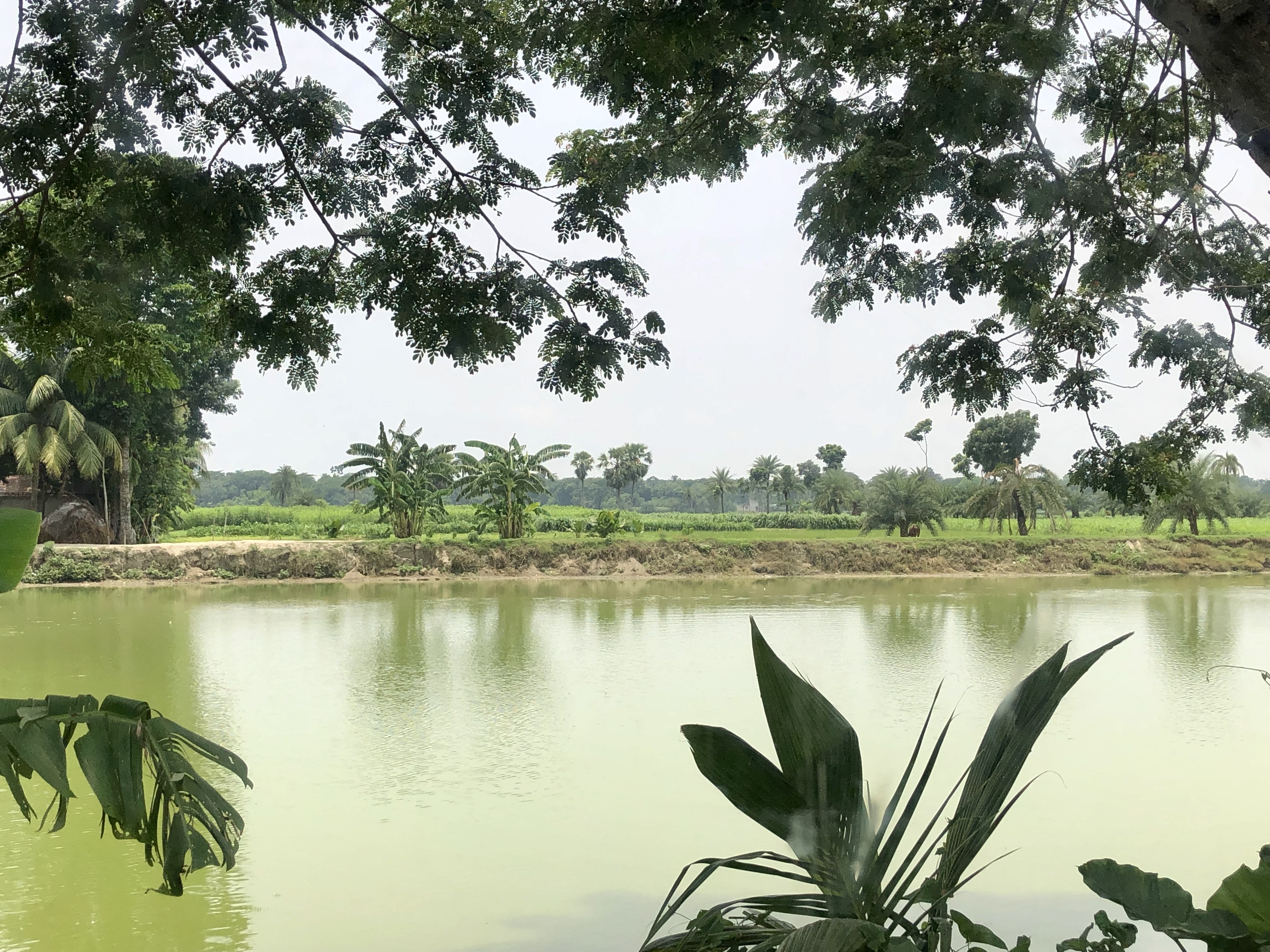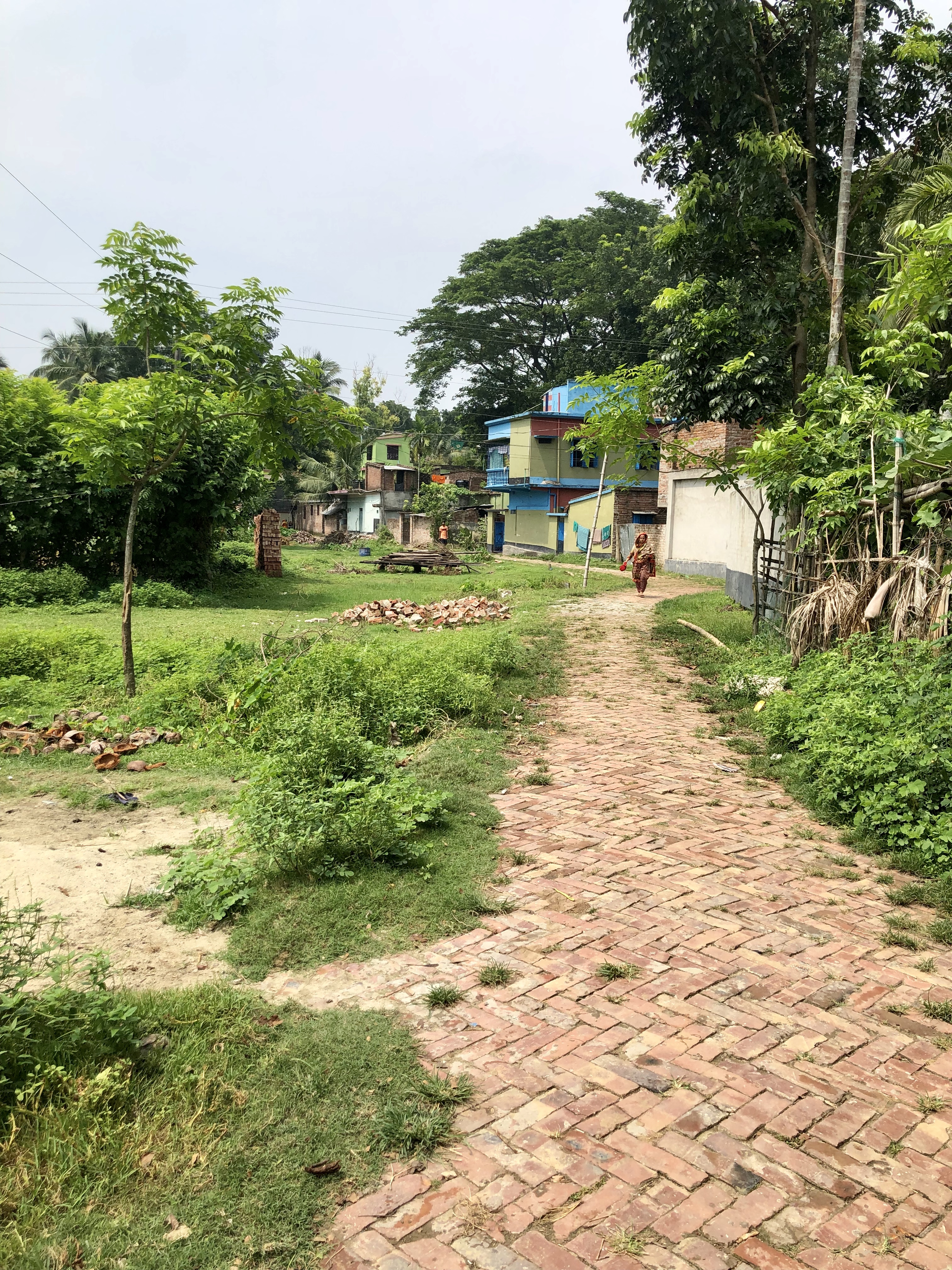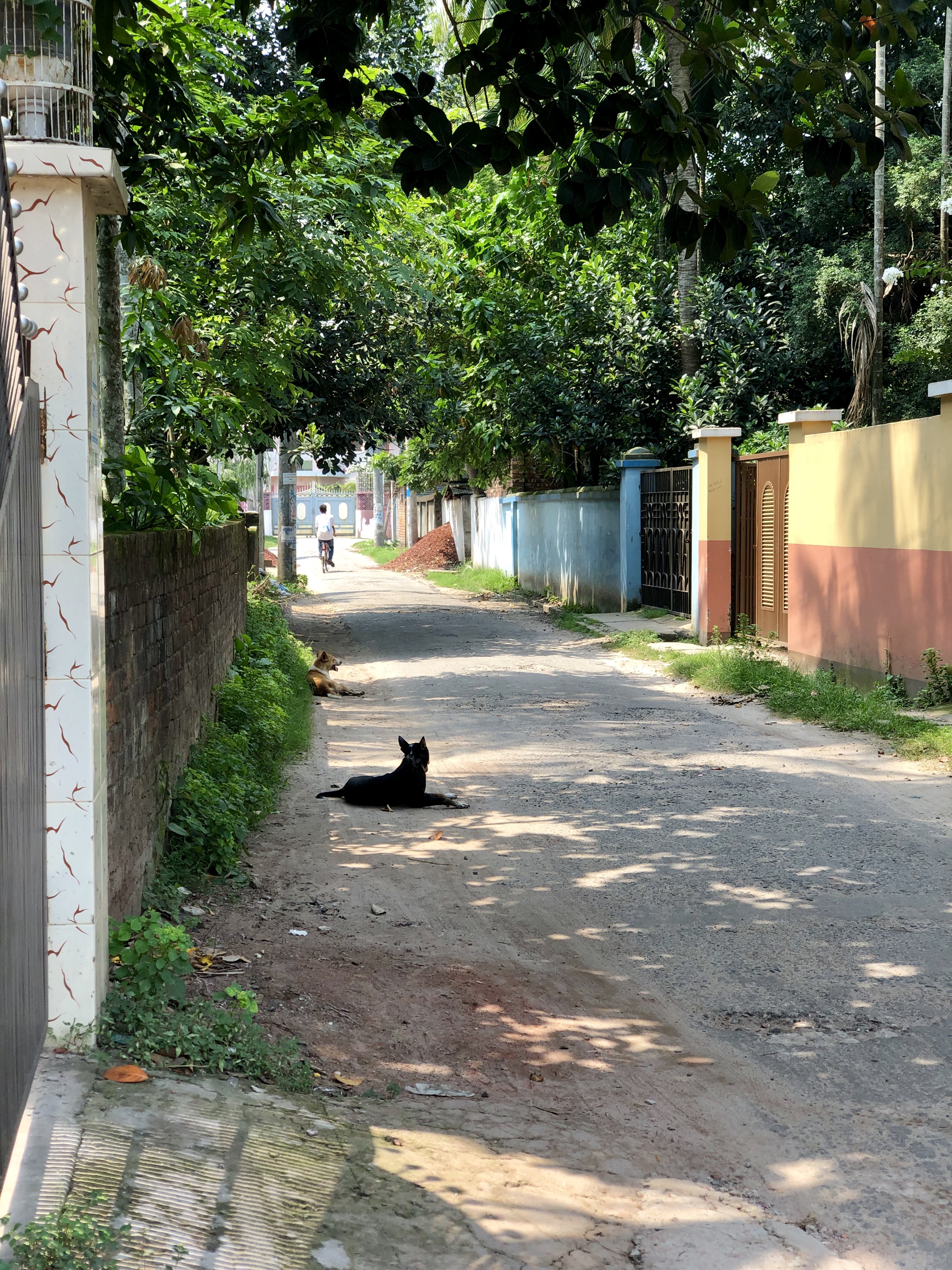Week Four
My apologies for the delay; between my internet intermittently going out every night, the regular power outages, and traveling for work, I am often fighting technology to keep you all updated regularly.
I returned from Vietnam Saturday night to a new apartment in Dhaka. There was nothing wrong with the other place, but my hosts asked if I would be willing to relocate as it would enable them to accommodate another housing request, and I agreed. So, I spent a few hours situating my things and then prepared for another work week.
My new apartment is a twenty-five-minute walk to work if I chose to do so; but because of the heat and humidity, along with semi-risky walking conditions (holes in the sidewalks, crazy traffic, etc.), I will generally take an Uber. Taking an Uber here is an experience. Many times the drivers are not aware of how to follow the GPS to your location, or occasionally the GPS may be incorrect. Usually, when ordering an Uber in Bangladesh, either you or the driver will call the other to confirm the pickup location. However, because of my severe lack of ability to speak Bangla, the language barrier often makes it difficult to communicate where I am located. Though there is also an option to send a message to the driver, so I have been trying that more often than calling, at least until I can learn how to say addresses correctly.
Additionally, sometimes, the capabilities of the vehicle are questionable. Last week I was in an Uber and I swore that the wheel was about to come off at any moment! The traffic jams can also largely hamper swift pickup times.
Often my app will say the driver is only a few minutes away, but in reality, it takes four to five times as long for them actually to arrive; or after waiting a while, they cancel and you have to start the process all over again. Both of these happened to me the other night while I was trying to get home from the store; it took me almost an hour to get an Uber to pick me up. All of these make for memorable events and reminders that this life is an adventure, one I am so grateful to experience.
This week much of my time was spent compiling the information I gathered from previous interviews and reviewing case studies from our partner organizations. I spent Sunday in the office, organizing my notes from interviews, and conducting research on human trafficking laws and implementation in Bangladesh and how they compare to other countries. Looking back at my notes, I always appreciate the passion of our partners, and their willingness to open up to me about the struggles they face every day.
On Monday, we visited the National Legal Aid Services Office. Unlike in the US, where legal aid is given by non-profit organizations, in Bangladesh, legal aid is offered as a government service for those who are under a certain income bracket. Speaking with the workers there, I was able to discuss the services offered and their take on the issue of human trafficking situation in Bangladesh. Additionally, we took a tour of their 24/7 call center. The call center is a free resource hotline for legal advice anytime day or night, and they have personnel specially trained to handle human trafficking cases. It was encouraging to see that this resource is available!
Later in the week, my supervisor and I traveled to Jessore, a city in Jashore, another district in Bangladesh. The airport we flew into is small, and the area more rural than Dhaka. This area is full of history with the British establishing it as a district in 1781, closely followed by the building and opening of a court for the district. As this district borders India, the highway leading from Jessore, Jessore Road, was enormously crucial for refugees fleeing to India during the Bangladesh Liberation War (there is a song called “September on Jessore Road” written about this road). And in December 1971, Jashore was the first district liberated from Pakistani forces; this was the beginning of the end of the war.
 While in Jashore, we journeyed to a few spots in the area. Riding from place to place provided ample opportunity to take in the sights. I saw kids swimming in the local pond while a group of men gathered for a card game at the local market. I laughed at a man attempting to direct disobedient traffic around a construction zone, and I observed a higher concentration of motor carts instead of cars and what I am calling a rural traffic jam.
While in Jashore, we journeyed to a few spots in the area. Riding from place to place provided ample opportunity to take in the sights. I saw kids swimming in the local pond while a group of men gathered for a card game at the local market. I laughed at a man attempting to direct disobedient traffic around a construction zone, and I observed a higher concentration of motor carts instead of cars and what I am calling a rural traffic jam.
During our busy two days in Jessore, I visited the courthouse that was built in 1781, a few local shops with elegant hand-embroidered items, and most importantly, I interviewed many partner staff, victims, survivors, and officials working in different levels of the legal process.
My first interview was with two labor trafficking survivors. Both had similar stories of looking for work and being promised a better job in another country. They both paid substantial money up front to the recruiter. Upon arrival they realized they were not in the country they were promised, someone took their papers, forced them onto a bus, and then into a warehouse with almost 200 other people.

Armed guards held them in deplorable conditions, beating them daily for nearly a year. Finally, someone was able to notify a family member in Bangladesh about the situation, and they were rescued. Partner organizations were able to assist them with medical treatment, employment training, finding work, re-establishing themselves, and filing court cases. I asked them what they would like to do in the future; one said they hope to recover their money to pay back the loans still owed from paying the recruiter; the other said they want to own their own business. Both said they want to purchase land for them and their family. Their court cases have been pending for approximately four years.
We visited a small village for my next survivor interview. Driving down a narrow path, a few chickens scurrying out of the way, we stopped in front of a shanty house. Across from the house was an open field where locals were drying rice on large tarps. The survivor was not immediately around, so someone else picked up a couple of chairs and took them over into a small open area where a couple of cows and some chickens were spending their afternoon. I was instructed to sit, so I sat down and waited for the survivor. Waiting in my chair, I observed more and people appearing. Villagers of all ages were gathering around, curious as to what I, clearly not a Bangladeshi, was doing out here in their little village. I smiled and said hi, and they returned the favor, standing about ten to twenty feet away, waiting to see what was next.

After a few more minutes, the survivor appeared, and I began my interview. During this time, interest diminished, or people were asked to provide some privacy for our conversation, so the crowd mostly dispersed. This story was similar to so many I have heard in my short time here; work was promised, they borrowed money and paid the migration fees, but when they arrived in their destination country they were subjected to terrible indignities and abuse, inadequate food and shelter. Finally, upon paying more money to the traffickers to return home, they were rescued and returned back home far more destitute than when they left.
Non-governmental organizations provided the survivors with medical treatment, repatriation, reintegration, and court assistance. Though they have received some support from the NGO, because they were already destitute, and returned home with even more debt, they are living in a two-room shanty house with their parents, child, and sibling. Throughout the process, they have fought bribes and other issues to get their case filed and heard in the courts. Traveling to court is time-consuming and difficult. The case has been pending for roughly seven years.
My last interviews of the trip were at a shelter home. Speaking with the three victims I met with that day revealed the different tactics that traffickers use to gain the trust of victims, and it is heartrending. Children trick their “friends” and give them to traffickers. Men convince girls they are in love with them so they run away with them, or marry them just to traffic them. Friends, neighbors, family, and community members build trust with individuals and then introduce them to traffickers under the guise of helping them finding work

We left the shelter and went directly to the airport to fly back to Dhaka. My mind was full, and my heart was heavy. The trip to Jashore was a busy trip, but I am thoroughly grateful for the opportunity to meet such utterly amazing people. I am always inspired by survivors who keep fighting every day when justice is nowhere in sight, and individuals involved in every level of the rescue, repatriation, and reintegration process, fighting an uphill battle to help just one more person.
Don't forget, you can find more pictures and videos here. Next week I am taking a ferry to visit Faridpur, keep an eye out for that blog coming soon!